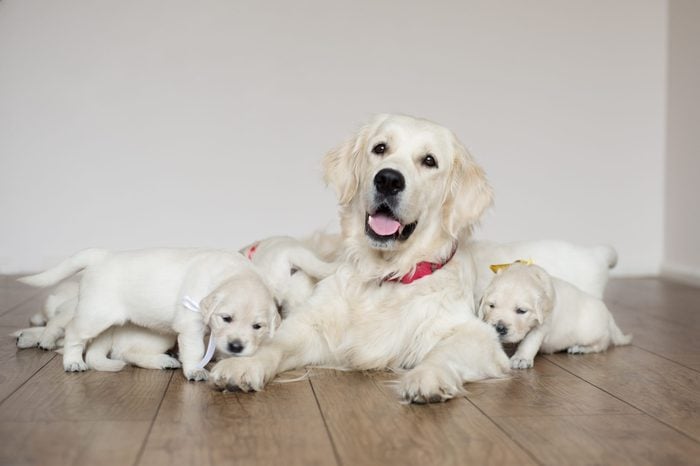
They don’t “vet” you
Puppy mills are all about profit, so it doesn’t matter to them where their puppies end up. A legitimate, responsible dog breeder will always check out your credentials before allowing you to take a dog home, according to the Humane Society. Questions will include:
- Why do you want a dog?
- Why do you want this breed?
- Who in your household will be responsible for the dog’s care and training?
- Do you have other pets? How will this dog fit into the family?
A reputable dog breeder might go so far as to require you to provide “references” to vouch for your fitness as a dog owner.

All they require from you is payment
A responsible dog breeder recognizes that dog breeding is an art and a science, and the average dog owner is not in any position to be breeding dogs on their own, says the Humane Society. Accordingly, in most cases, a responsible dog breeder will require you to agree—in writing—that you will spay or neuter your dog. An exception would be if you are purchasing a “show” dog for the purpose of showing him or her.
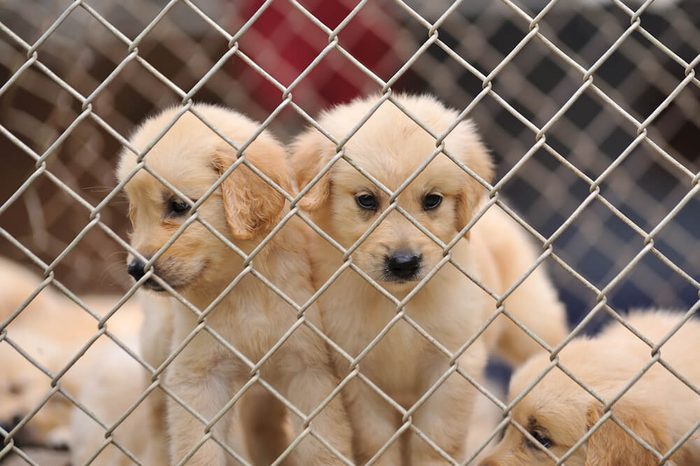
They won’t show you where they keep their dogs
“You should be able to visit the breeder’s home or kennel,” advises the American Kennel Club (AKC). And you should take them up on it, rather than meeting with them in another location, no matter how convenient it might be for you. Once there, feel free to be judgemental about the conditions. Consider it a red flag if the answer to any of the following questions isn’t yes:
- Are the premises clean?
- Do the premises smell clean?
- Do the other animals on the premises appear happy and well-fed?
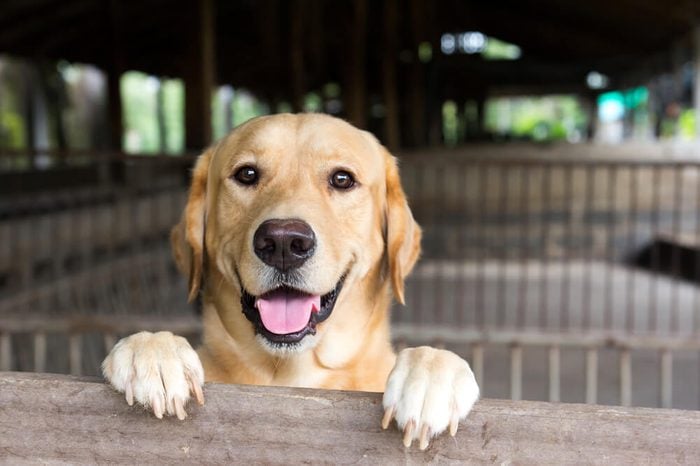
Their “premises” consist of an industrial site
Legitimate breeders breed their dogs at home. If the address you’re given is a warehouse in an industrial estate, “don’t bother,” advises Off Leash K9 Training, a dog training school located in Virginia. Can you guess the most popular dog breed in your home state?
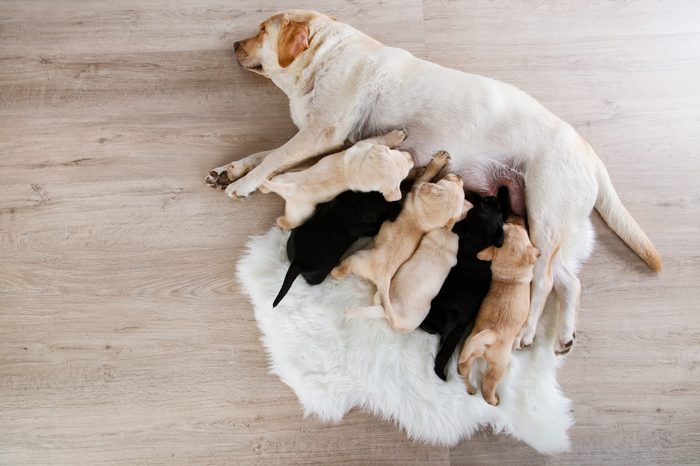
No dog-parent is available for you to meet
If the parents aren’t available, it’s a sure sign that something is “off,” according to Off Leash K9 Training. No parent-dog most likely means the pups have already been separated from the mother, and usually too early. This can interfere with your new puppy’s ability to thrive. Or it could mean that the mother is sick, malnourished, or ill-tempered. And it certainly points to a lack of a relationship between the breeder and the parent-dog (more on that below).
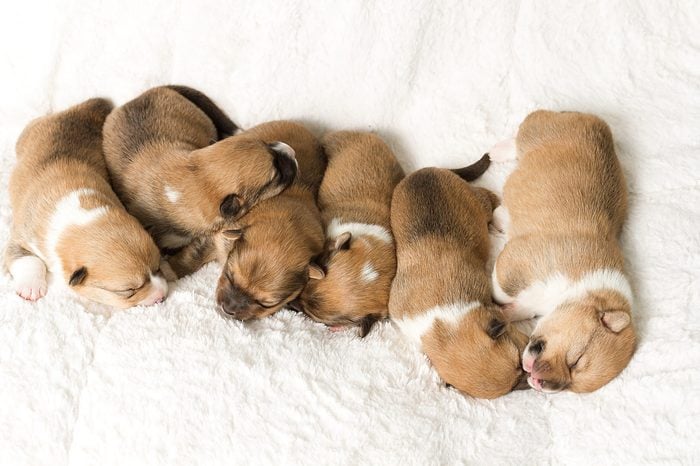
The litter is less than six weeks old
Ask what age the puppy is. Puppies shouldn’t be taken away from their mothers until “at least six weeks,” but eight weeks is recommended (and in some cases, it’s state law). If the puppy is younger than that and the parent is nowhere in sight then alarm bells should be ringing. This isn’t an issue with a rescue dog that you adopt from a shelter, particularly if the shelter is operated on a not-for-profit basis. Plus, adopting a rescue pup has these surprising benefits.
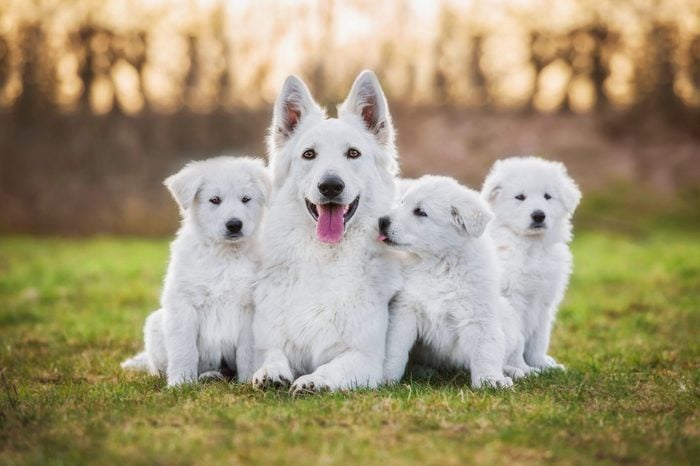
The breeder doesn’t seem to have much of a relationship with the parent-dog
Sure, breeding dogs is a business, but it’s a business that requires a genuine love and appreciation for dogs. Therefore, you should consider it a red flag if the breeder does not appear to treat the parent-dog like a member of his or her own family. Would you trust a babysitter who didn’t seem to treat her own children win a caring manner?
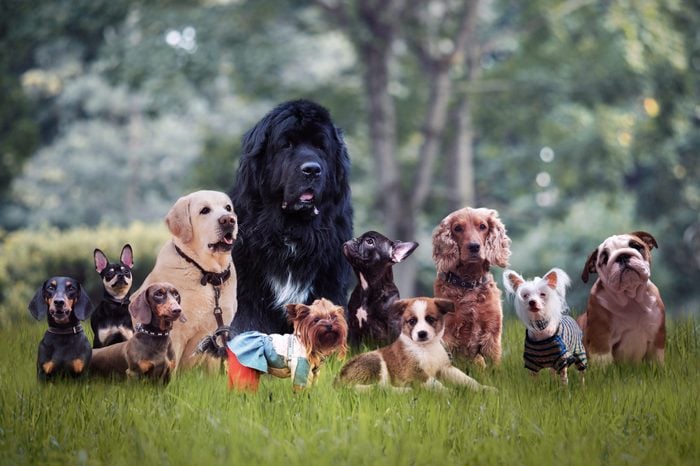
The breeder doesn’t “specialize” in any particular breed
Every breed of dog has its own unique characteristics and needs, and some even have their own unique health problems. Whatever breed you choose, you’ll want to be dealing with a breeder who is an expert and can provide expert advice, about the breed, the Humane Society advises.

The breeder always has puppies “in stock”
Dogs are not puppy-machines, and those who treat them as such aren’t legitimate breeders, notes Off-Leash K9 Training. “Ask how many pups are for sale. A normal litter is between five and eight puppies (with exceptions).” Any more than that, and it’s a sign you’re dealing with a puppy mill.
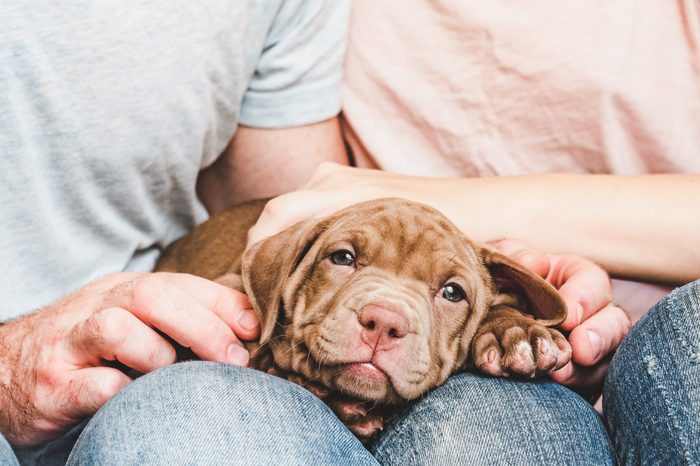
The breeder pushes you to close the deal
In any situation where you’re a potential buyer, nothing says “run in the opposite direction” like a pushy seller. In the context of making a purchase that will bring a new family member into your home, the stakes are particularly high. A reputable breeder will respect the weight of your decision.
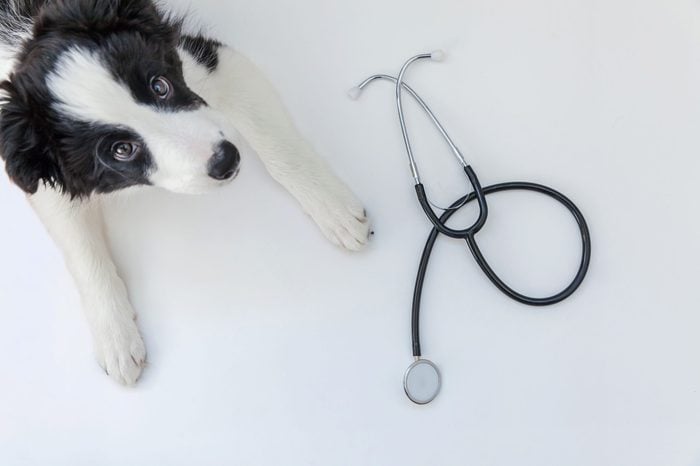
The breeder can’t provide vet records
A good breeder maintains relationships with one or more local veterinarians. A good breeder should be able to produce accurate and reliable health and vaccination records for their puppies points out the ASPCA. If a breeder doesn’t have vet records on hand for your pup, you should assume there are no records. Or worse, it might be a sign there is something physically wrong with your pup.
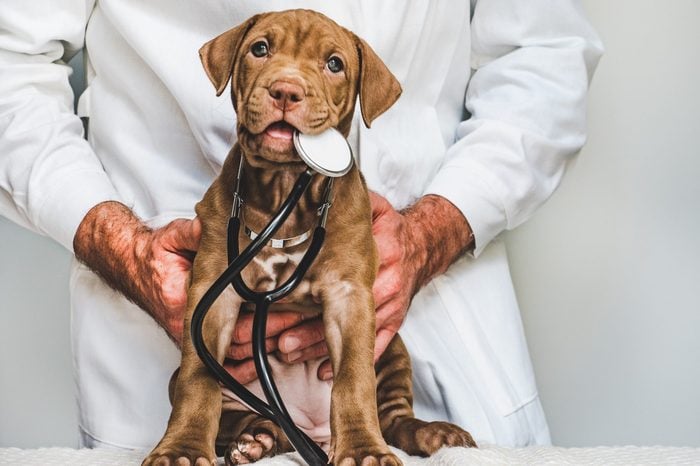
The breeder requires you to use a particular veterinarian
Even if your breeder has vet records for your new pup, you should be suspicious if the breeder in any way pushes you to take your new pup to the same veterinarian they’ve been using. A good breeder will have no issue with letting you choose your own veterinarian. A shady breeder might even be working in cahoots with a shady veterinarian to conceal health problems in your new pup.
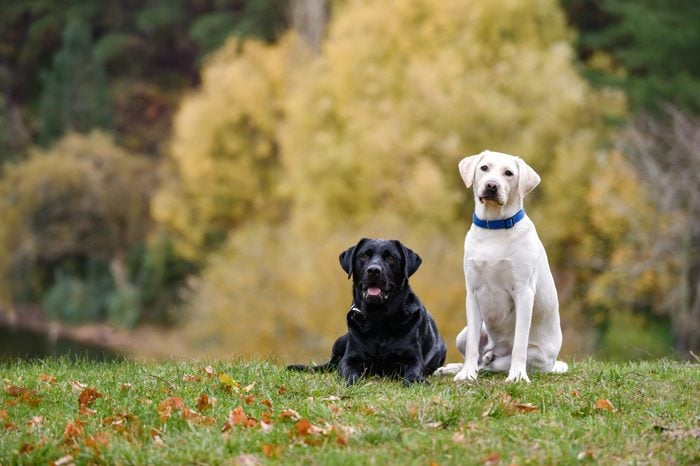
An absence of documentation
If you’ve made the decision to purchase a dog of a particular breed, you should feel confident that your dog is, in fact, legitimately a member of such breed. So when purchasing a pedigree pup, you should never leave the premises without the appropriate documentation of the dog’s pedigree” warns the AKC. Refusal or even hesitation to present such documentation is a red flag. So too is a promise to “mail them” at a later date.

There’s no post-purchase planning
A good breeder wants to know their dog has gone to a good home and will make room for the unfortunate possibility that you’ll realize that you can’t provide that good home to your new pup. A good breeder will, at the very least, advise you of what you should do in the event it doesn’t “work out,” and preferably provide you with written instructions. And while you can’t know this until you walk out the breeder’s door, a reputable breeder will be in touch with you in the first days and weeks to make sure all is well. Ready to name your new pup? Start with these adorable ideas based on your dog’s particular breed.
